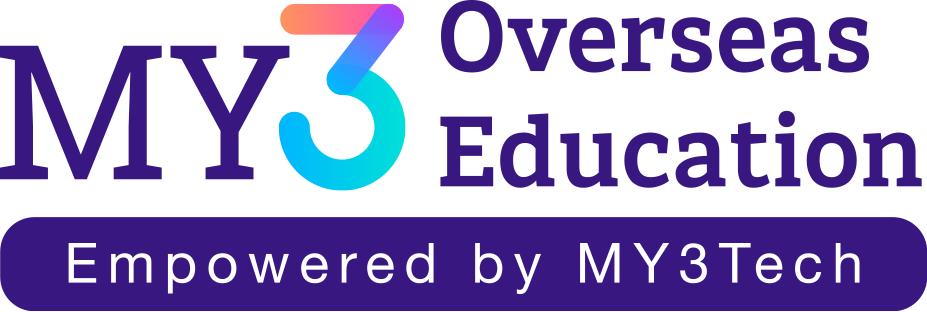Canada
My3 Overseas stands out as the premier consultancy for students aspiring to study in Canada, particularly in Hyderabad. Canada, the 15th largest economy globally in terms of Purchasing Power Parity, ranks among the wealthiest nations worldwide. Its economy predominantly thrives on the service sector, employing a significant portion of its population. While Canada shares a similar landmass with the United States, it boasts a much smaller population, with only about a tenth of its neighbour’s inhabitants, totalling 34.6 million people. Notably, despite its vast expanse, the northern regions endure extreme cold, with permafrost prevailing for much of the year.
Consequently, approximately 90% of Canadians reside within a mere 100 miles of the US border. Canada has earned recognition from the United Nations as one of the finest places to live globally. The country’s urban centres, notably Montreal, Toronto, and Vancouver—referred to as MTV Cities—enjoy immense popularity. Embracing its identity as a nation of immigrants, Canada actively fosters multicultural diversity while prioritizing a healthy living environment for its residents.

Study in Canada: Facts about Canada:
- Canada ranks among the world’s most generous nations, alongside the USA and New Zealand.
- Geographically, Canada is the second-largest country globally, surpassed only by Russia, yet it maintains a relatively low population density.
- Canadians are often stereotyped as being excessively apologetic, regardless of fault.
- The country demonstrates progressiveness, exemplified by Prime Minister Justin Trudeau’s 2015 cabinet formation, which included equal representation of women and men, as well as members from various ethnic communities.
- Canadians embrace outdoor activities passionately, including skiing, snowboarding, hiking, mountain biking, rock climbing, camping, canoeing, and snowshoeing.
- Known for their friendliness, Canadians are inclined to help voluntarily.
- Ottawa serves as Canada’s capital, akin to Canberra in Australia, though less recognized internationally.
- Tim Horton’s, founded by a former ice hockey star, stands out as Canada’s most popular coffee shop.
- Toronto, the largest city in Canada, boasts global significance in business, finance, arts, and culture, consistently ranking among the world’s most liveable cities.
- Canada hosts 26 institutions ranked among the world’s best, according to Times Higher Education’s World University Rankings 2018.
- Canadian education is comparatively more affordable than in the USA, featuring a straightforward application process and abundant opportunities for Permanent Residency.
Study in Canada: Educational Landscape
Canada’s education system enjoys a blend of public and private funding, affording parents the freedom to select their preferred institutions for their children. Governed by provincial authorities, akin to state boards in each province, with federal oversight, Canada’s education system attracts over 130,000 international students annually.
The academic calendar typically spans from September to June, aligning with international standards.
The nation takes pride in its diverse range of universities and colleges, with Canadian degrees recognized worldwide.
Institutions are classified into two main categories:
- Universities: These publicly funded institutions offer a wide array of programs across various fields of study.
- Community Colleges: Also publicly funded, these institutions emphasize career-oriented education, preparing students for immediate entry into the workforce.
Program Types:
- Eng (Master of Engineering): Emphasizes coursework alongside a project, with coursework as the primary component.
- MASC (Master of Applied Science): Combines coursework with a thesis, with the thesis serving as the primary focus. Typically completed in two years, scholarships are available for eligible students.
- Post-Secondary Diplomas:Typically, two years in duration, providing specialized education.
- Advanced Diplomas: Spanning three years, offering comprehensive training.
- Graduate Certificates/Post-Graduate Diplomas: One to two years in duration, focusing on specialized areas of study.
Academic Year:
- Universities commence sessions in September and January.
- Colleges offer intakes in September, January, and May.
English Proficiency:
- For Post-Graduate Diplomas, a score of 6.5 overall with no band less than 6 is commonly required, although some institutions may accept 6.0 overall with no band less than 6.
- For Undergraduate Diplomas, a score of 6 overall with no band less than 6 is typically expected.
SDS and Non-SDS (Study Direct Stream):
The Student Direct Stream (SDS) is an accelerated study permit processing program designed for individuals applying to pursue studies at a post-secondary designated learning institution (DLI) in Canada. To be eligible for a study permit under the SDS route, applicants must meet the following criteria:
- Demonstrated English proficiency, with a minimum overall score of 6 in IELTS (academic), a minimum overall score of 83 in TOEFL iBT, or a minimum overall score of 60 in PTE.
- Submission of upfront tuition fee payment to the designated learning institution (DLI).
- Transfer of one year’s living expenses and acquisition of a Guaranteed Investment Certificate (GIC).
- Expedited visa processing, with visa outcomes typically provided within 15 to 20 days. The SDS route boasts a high visa approval rate.
Non-SDS: If an applicant does not meet the criteria outlined above, they must apply for a visa under the non-SDS route. Visa processing times under this route are generally longer compared to SDS, and the visa approval rate is relatively lower.
Study in Canada: General Admission Criteria
Colleges:Submit academic records, passport copy, IELTS scores, and obtain offer letter.
University:
- Provide B.Tech transcripts in sealed envelopes, 2 or 3 recommendation letters from professors in sealed envelopes, a compelling Statement of Purpose (SOP), photocopies of 10th, 12th, and passport with notary, in some cases, submit standardized test scores (GRE, IELTS, TOEFL), university recommendation letter filled by a professor, evidence of internship/work experience, extracurricular credentials, and CV/Resume.
- Pay the tuition fee, transfer living expenses, and obtain the Guaranteed Investment Certificate (GIC).
- For study permit applications to Quebec-based institutions, apply for the Certificate of Acceptance of Quebec (CAQ) before proceeding with the visa application.
- Complete a medical/health check-up (appointment is mandatory).
- Prepare a persuasive SOP outlining your objectives for studying in Canada and how it aligns with your career goals post-graduation from the Canadian institution.
- Fill out visa forms online, schedule an appointment for biometrics (costing CAD $85), then submit the visa application at the VFS office in Banjara Hills. The visa fee is CAD $150, and no prior appointment is required for submission.
- Visa decisions are typically provided within 4 to 6 weeks.
Part-time and Post-Study Work in Canada:
Part-time Work:Students are permitted to work part-time for up to 20 hours per week while classes are in session and full-time during semester breaks.
Post-Study Work:
- Upon completing their studies at colleges/universities in Canada with a post-secondary diploma, advanced diploma, bachelor’s degree, postgraduate diploma, or master’s degree, students may apply for a visa extension to work and gain professional experience in Canada.
- Depending on the duration of your program, you may be eligible for a Post-Graduation Work Permit (PGWP) ranging from 1 year to 1.5 years, up to a maximum of 3 years.
- You have up to 180 days after graduation to apply for a PGWP.

